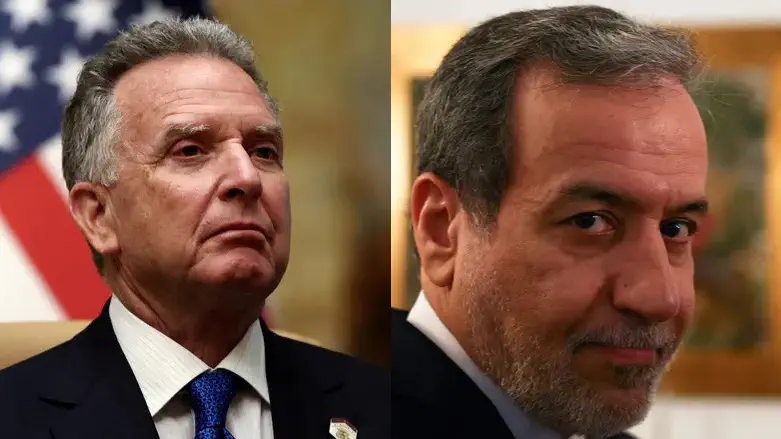
Iran and the United States are set to engage in a fifth round of nuclear talks in Rome this week, as efforts continue to forge a new agreement regarding Tehran's nuclear program, AFP reported on Wednesday.
Omani Foreign Minister Badr Albusaidi confirmed the upcoming meeting on X, stating, "The 5th round of Iran-US talks will take place in Rome this Friday."
Iran's foreign ministry spokesman, Esmaeil Baqaei, affirmed Tehran's participation, noting agreement "to a proposal put forward by (mediator) Oman... to organise another round of Iran-US talks" in the Italian capital.
The central objective of these talks is to establish a new accord that would limit Iran's nuclear activities in exchange for sanctions relief. However, a significant hurdle remains Iran's uranium enrichment program. Western nations, including the United States, have long expressed concerns that Iran seeks atomic weapons, while Iran consistently asserts its nuclear program is for peaceful purposes.
Iran has repeatedly insisted that its right to uranium enrichment is "non-negotiable," a stance directly at odds with chief US negotiator Steve Witkoff, who has labeled it a "red line," reiterating that the United States "cannot allow even one percent of an enrichment capability."
Adding a layer of skepticism to the diplomatic efforts, Iran's Supreme Leader, Ayatollah Ali Khamenei, voiced doubts about the prospects of the talks earlier this week. "We don't think it will lead to any outcome. We don't know what will happen," he stated, further adding that denying Iran's right to enrich uranium was "a big mistake."
Foreign Minister Abbas Araghchi underscored Iran’s stance on uranium enrichment, stating that Iran would continue enriching uranium "with or without a deal" on its nuclear program.
The Islamic Republic currently enriches uranium to 60 percent, significantly above the 3.67-percent limit stipulated in the 2015 agreement.
The 2015 deal saw the lifting of sanctions in return for UN-monitored restrictions on Iran's nuclear activities. However, the agreement began to unravel in 2018 when the Trump administration withdrew and reimposed sanctions on Iran's crucial oil exports and banking sector. A year later, Iran commenced rolling back its commitments to the accord.
As the talks unfold, the three European powers—parties to the original 2015 accord—are reportedly considering triggering the "snapback" mechanism, which would reinstate UN sanctions in response to Iranian non-compliance.
That option is set to expire in October, a deadline that has been met with a warning from Araghchi earlier this month of "irreversible" consequences if Britain, France, and Germany proceed with reimposing sanctions.

